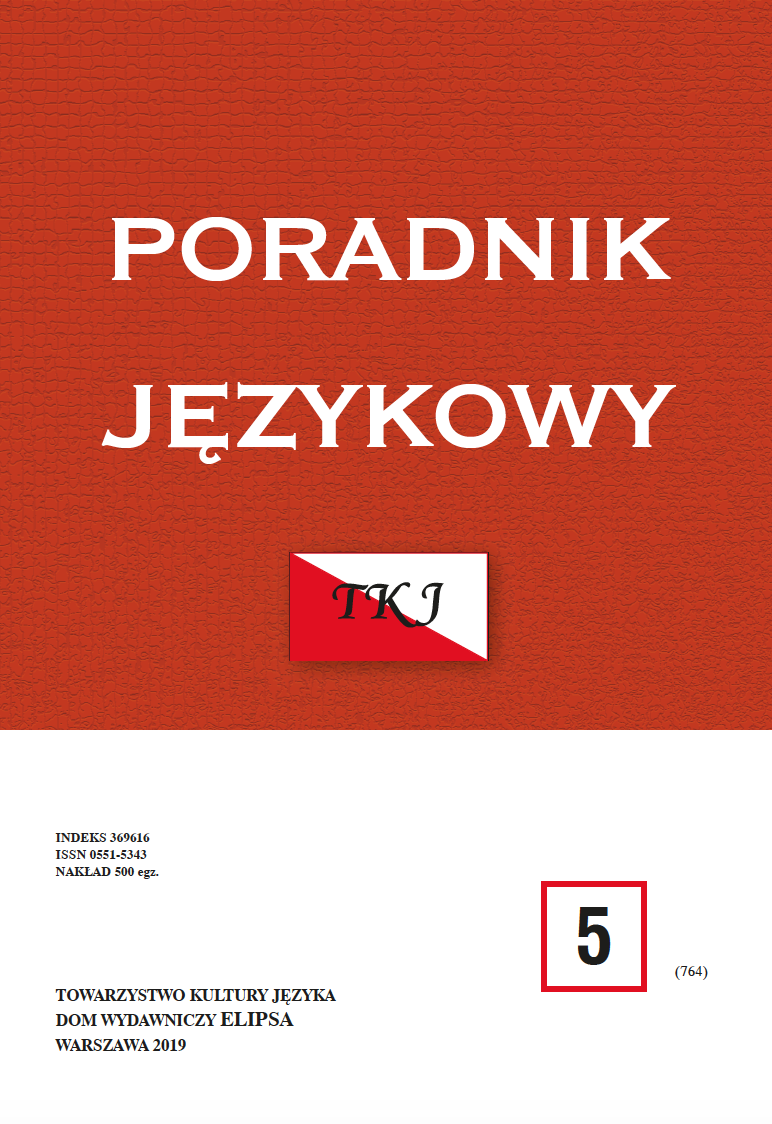WEGE – SAMODZIELNA JEDNOSTKA, CZŁON ZŁOŻENIA, WYRAZ MOTYWUJĄCY
Wege ( vege) – an independent unit, a compound element, a motivational word
Author(s): Karolina LisczykSubject(s): Theoretical Linguistics, Applied Linguistics
Published by: Dom Wydawniczy ELIPSA
Keywords: vege; word
Summary/Abstract: The purpose of this paper is to provide a linguistic description of the unit wege (vege), the expansion of which in the contemporary Polish language has been noticeable for more than ten years now and the grammatical status of which has still not been stabilised. It functions both as an independent word (a negative derivative coined based on the adjective wegetariański (vegetarian) or the noun wegetarianizm (vegetarianism)) and a compound element in nonaffixal structures, which is added directly to noun stems. Neologisms derived from wege, e.g. wegować, wegowy and weg, have been noticeable in the environmental lexis used by vegetarians in recent years. Apart from the unit wege, forms wega and wegi as well as their graphic variants vege and vega can be found in online texts, which refl ect colloquial speech. The description of the signalised forms was made based on the fi ndings from the area of the contemporary structural word formation and the material was obtained from the Internet and the National Corpus of Polish.
Journal: Poradnik Językowy
- Issue Year: 2019
- Issue No: 05
- Page Range: 56-66
- Page Count: 11
- Language: Polish
- Content File-PDF

